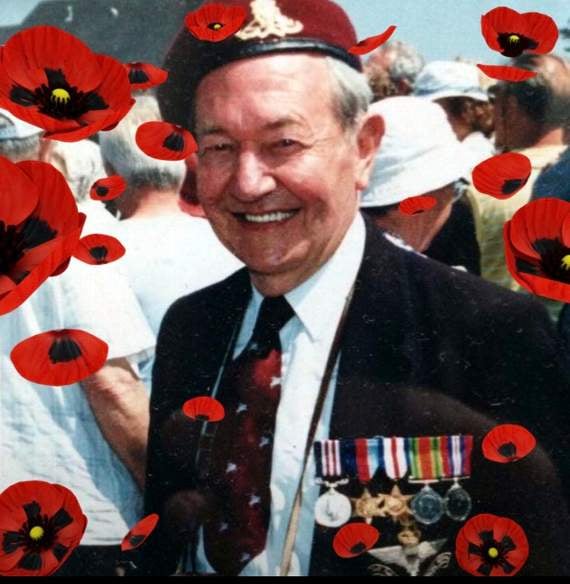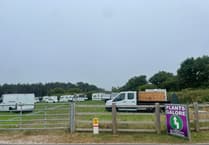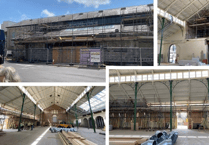FATHER’S Day brought back memories for GORDON HOOPER of Newton Abbot. And today (Monday) marks a significant anniversary in the life of his late father, Ivor.
June 29, 75 years ago, was a memorable day for Newton Abbot couple George and Gertrude Hooper as they accompanied their son Ivor to Buckingham Palace.
Here they watched as Ivor was invested with his Military Medal by King George VI. Gunner Ivor Hooper (14600489) as he was at the time, was awarded his gallantry medal for his action in saving two colleagues from the wreckage of a burning glider.
He was in the 53rd Worcester Yeomanry, which was a component of the 6th Airborne that launched, along with other divisions, the last major European offensive of World War II.
A successful crossing of the Rhine was achieved, but not without casualties as several gliders overshot their landing target. The aircraft that Ivor was in overshot and burst into flames with not everyone surviving.
The citation illustrates Ivor’s bravery:
Gunner Hooper was in the back seat of a glider taking part in the airborne operation for the crossing of the Rhine on 24th March 1945.
The glider was repeatedly hit by Anti-Aircraft fire, set alight before crash landing on the East bank of the River Issel, when it came under machine gun and heavy small arms fire.
Gunner Hooper however, taking no heed of the enemy or his own safety, rushed to the front and helped release a badly wounded officer lying pinned in the wreck. Together with another survivor he then waded the river under fire carrying the officer to the safety of our own lines, only to return immediately to what was now a blazing wreck to rescue the wounded glider pilot. In spite of a further outburst of fire directed at him Gunner Hooper succeeded in getting the pilot to safety. By his gallantry and complete disregard of obvious danger this man saved two lives from certain death by burning.
Ivor was only 20 at the time, with the Rhine crossing coming just four days after his birthday. In 1944 he had been amongst the earliest troops on the ground on D-Day – again arriving by glider. He was in Normandy for a while before returning to England. His unit was then called into Belgium around Christmas of 1944 before his next deployment in March 1945.
With the Rhine crossed the allied troops quickly pushed north through Germany to the Baltic port of Wismar, with the Germans on the run, a stand-off developed with the Russian army. Within days of the two armies linking up, victory in Europe was declared.
Ivor was soon back in England and summoned to the Palace.
Although peace had been achieved in Europe, fighting was still ongoing in the Far East, which was to be have been Ivor’s next destination.
However, whilst in transit, the Allies ended the war on the other side of the world and Ivor was diverted to peacekeeping duties in Palestine.
He spent about six months there before being demobbed and returning home to 10 Fairfield Terrrace.
Well-known local sweet manufacturers, Pollards, became his main employment for 40-plus years. Ivor had a keen interest in the local sporting scene, especially rugby and cricket.
He died in 2009 aged 84 just two days short of the 65th anniversary of D-Day.
He was survived by wife Doris, children Gordon and Valerie, plus six grandchildren and eight great grandchildren.





Comments
This article has no comments yet. Be the first to leave a comment.